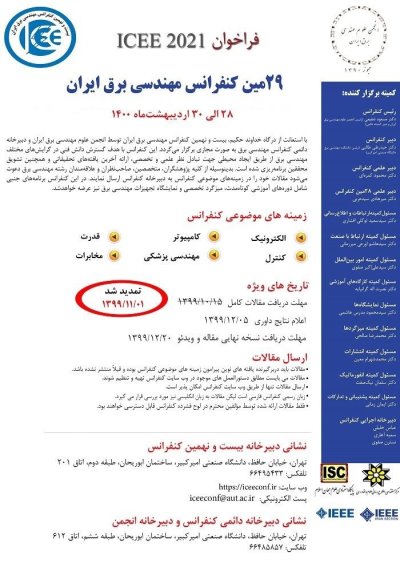0% Complete

نویسندگان :
کلمات کلیدی :
چکیده :
لیست مقالات بایگانی شده
ََAmirreza Ghazi - Arash Yazdanpanah
Kamalaldin Mozaffari Maid - Amir Sabbagh Molahosseini
Mehdi Samavati - Samad Sheikhaei - Mohsen Jalali
Arash Akbari - Arman Akbari - Mehdi Tale Masouleh
Mahdi Niknejad - Mahdi Firouzbakht - Maryam Amirmazlaghani
Ayda Zamani Ahari - Saeed Saeedi
Ali Anisi - Moosa Ayati - Yassin Riyazi - Ali Asadian
Mehran Nemati - Hamed Karimi - Alireza Siadatan - Maryam Sepehrinour




